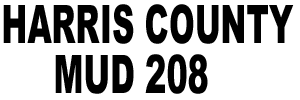Summer Water Rates Now in Effect
The following summer water conservation rates are now in effect:
| Residential Summer Water Conservation Billing Rates – May thru September | |
| 0 – 8,000 gal. | $9.50 minimum bill |
| 8,001 – 20,000 gal. | $2.75 per 1,000 gal. |
| 20,001 – 30,000 gal. | $3.25 per 1,000 gal. |
| Over 30,000 gal. | $4.50 per 1,000 gal. |
The WHCRWA water rate and the sewer rate are billed in addition to the rates shown above.
For more details go to Detailed Water & Sewer Rate Order



